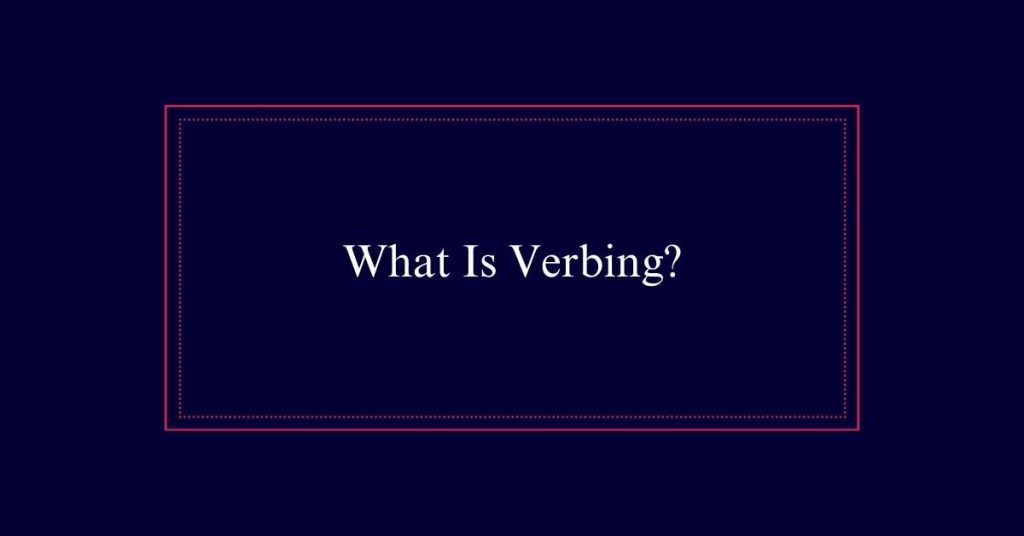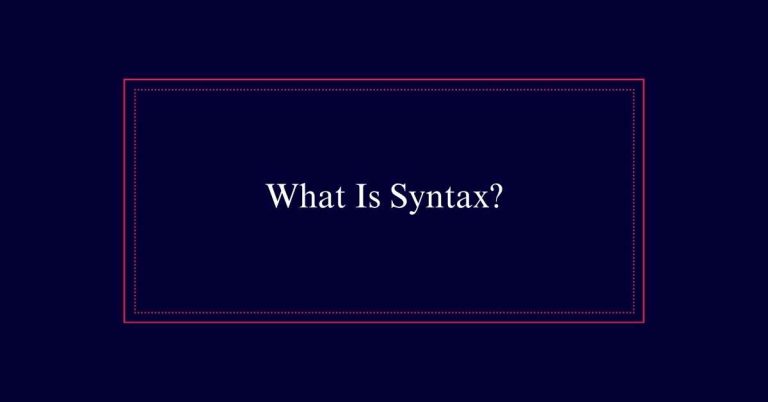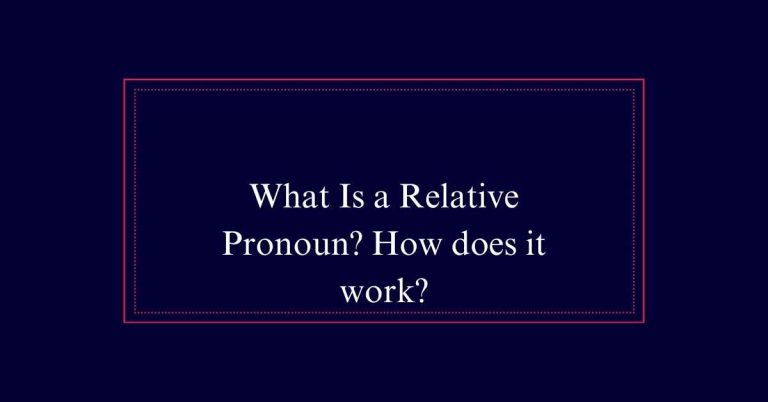What Is Verbing?
Verbing is the practice of converting a noun into a verb, highlighting the English language’s flexibility. This transformation allows nouns to take on new grammatical roles, enriching communication. Examples include “Google” to mean searching online and “friend” as adding someone on social media.
Understanding Verbing
Verbing involves using a noun as a verb in a sentence. This practice showcases English’s flexibility in grammatical functions.
While verbing is often understandable and common in informal contexts, caution is advised when using it in formal situations.
Many people find verbing to be creative and expressive, though some may find it irritating. The transformation of nouns into verbs is a proof of the dynamic nature of the English language.
Its usage can enrich communication by introducing new expressions. However, it is important to take into account the audience and context to guarantee clarity and appropriateness.
Grammatical Flexibility
The practice of verbing highlights the grammatical flexibility inherent in the English language. English allows words to shift roles, making communication dynamic and adaptable. This flexibility means nouns can easily become verbs, enriching the language.
For instance, the noun ’email’ has smoothly shifted into the verb ‘to email.’ Such transformations demonstrate the language’s ability to evolve and meet new communicative needs. Verbing is not restricted to casual conversation; it reflects a broader linguistic adaptability.
This capacity for change makes English robust and versatile. It allows speakers to create new expressions, ensuring the language remains relevant.
Informal Vs. Formal Use
In informal settings, using nouns as verbs can add a playful and modern touch to conversations. This practice, often seen in casual speech and online interactions, brings a sense of novelty and creativity. However, in formal contexts, the use of verbing may be less appropriate. It can come across as unprofessional and may confuse the audience. Understanding when to use verbing is essential to effective communication. Below is a table illustrating the emotional impact of verbing in different contexts:
| Context | Emotional Impact |
|---|---|
| Informal | Playful, Engaging |
| Formal | Unprofessional, Confusing |
| Social Media | Trendy, Relatable |
| Professional | Distracting, Inappropriate |
Common Verbing Irritations
Despite the playful and engaging nature of verbing in informal contexts, it can also lead to common irritations among language purists and traditionalists. Many feel that verbing undermines the structural integrity of the language. They argue that it creates confusion, especially when a noun already has an established verb form.

For example, using ‘to friend’ instead of ‘to befriend’ can be seen as redundant and unnecessary. Additionally, some believe that verbing contributes to linguistic laziness, bypassing more precise and established vocabulary.
Social Media Influence
Social media platforms play an essential role in popularizing new verbs. They provide a space where language evolves rapidly. As users create and share content, novel verbs often emerge and gain traction. These platforms accelerate the acceptance of new terms due to their massive reach and user engagement.
Key influences of social media on verbing include:
- Viral Trends: Words can quickly become popular through memes, challenges, and viral posts.
- User Interaction: Social media encourages users to experiment with language, leading to creative new verb forms.
- Brand Influence: Companies often introduce new verbs based on their products or services, which users then adopt.
Noun-Verb Conversions
Noun-verb conversions involve transforming a noun into a verb to convey action. This process is common in English and adds flexibility to the language. For instance, the noun ’email’ has been verbified to ’emailing,’ indicating the act of sending electronic mail. Another example is ‘access,’ which changes from a noun to a verb as in ‘accessing data.’
Noun-verb conversions streamline communication. They allow speakers to express actions succinctly. While these transformations are often seen in informal contexts, they are increasingly accepted in formal writing as well.
Popular Verbified Brands
Brand names often become verbs when they achieve widespread popularity and usage. This phenomenon occurs when the brand name becomes synonymous with the action it represents.
Some widely recognized examples include:
- Google: People frequently say ‘to google’ when referring to searching the internet.
- Xerox: The term ‘to xerox’ is commonly used to mean making photocopies, regardless of the copier’s brand.
- Photoshop: Many say ‘to photoshop’ when they mean editing images, even if they use different software.
Process of Verbification
The phenomenon of brand names evolving into verbs showcases the broader process of verbification within the English language. This linguistic transformation occurs when a noun, often a brand name, is used as a verb in everyday speech.
For instance, ‘google’ and ‘xerox’ started as trademarks but are now commonly used as verbs. This process begins with frequent use in conversation and media. Over time, the verbified form gains acceptance and understanding.
Social media accelerates this process by providing a platform for widespread usage. Verbification reflects the dynamic and adaptable nature of English, allowing it to evolve continually.
Dictionary Entries
Dictionaries often include verbified forms of popular nouns, reflecting their widespread use and acceptance in language. These entries validate the fluid nature of English, showing how nouns evolve into verbs over time.
For example:
- Google: Originally a brand name, now a verb meaning to search the internet.
- Text: Initially a noun, now also a verb used for sending messages via mobile devices.
- Friend: Traditionally a noun, it has been verbified to mean adding someone to a social media network.
Can you provide examples of verbing in different verb tenses?
Sure, here are some verb tenses examples in different verb tenses:Present: I walk to the store. Past: She ate dinner last night. Future: They will play soccer tomorrow. Present continuous: He is reading a book. Past perfect: We had finished our homework. Future perfect: They will have graduated by then.
Language Evolution
As dictionaries incorporate verbified nouns, they mirror the broader phenomenon of language evolution. Language is dynamic, constantly adapting to cultural and technological changes. Verbing is a natural part of this process. It allows for more expressive and efficient communication.
Historically, language has always evolved through the creation of new words and meanings. Innovations like ‘google’ and ‘tweet’ demonstrate how modern life influences language. Social media accelerates this evolution, introducing terms that quickly gain popularity. Over time, these verbified nouns may become standard, reflecting ongoing shifts in how we communicate.






